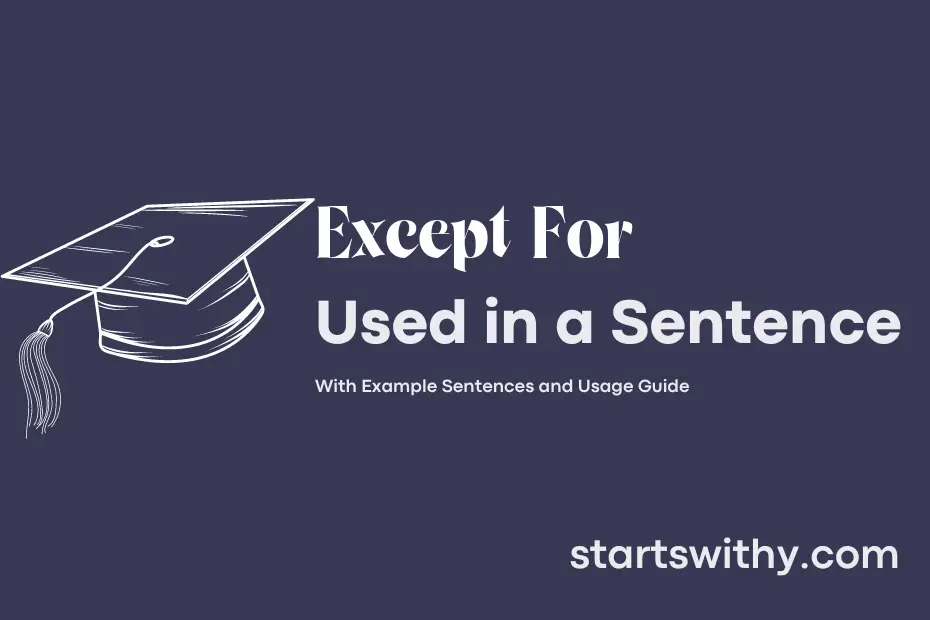Curious about how to use “except for” in a sentence? This phrase is commonly used to present an exception or exclusion to a general statement. When you want to highlight something that does not fit the standard pattern or rule, “except for” is a useful tool to bring attention to that unique case.
7 Examples Of Except For Used In a Sentence For Kids
- I ate all my vegetables except for the peas.
- I cleaned my room except for under the bed.
- We played all the games except for hide and seek.
- She finished her homework except for the last page.
- They watered all the plants except for the cactus.
- We sang all the songs except for the ABC song.
- He read all the books except for the fairy tale.
14 Sentences with Except For Examples
- I have finished all my assignments except for the one due next week.
- I am ready for the exam except for the last chapter, which I need to review.
- I have packed everything for my trip except for my toiletries.
- I have all the materials for the project except for the glue and scissors.
- I completed all my readings except for the one assigned by the guest lecturer.
- I have arranged all the notes for the presentation except for the statistics data.
- I have paid all my fees except for the library fine.
- I have signed up for all the workshops except for the one on research methodologies.
- I have attended all the seminars except for the one that clashed with my class timings.
- I have connected with all my classmates except for the new student.
- I have joined all the clubs except for the dance club.
- I have completed all the questionnaires except for the one about campus facilities.
- I have completed all the online tutorials except for the ones on advanced topics.
- I have submitted all my forms except for the one from the student council.
How To Use Except For in Sentences?
Except For is used to show an exception to a general statement.
For example, “I like all fruits, except for bananas.” In this sentence, the speaker is saying that they like all fruits except for bananas, indicating that bananas are the only exception to their general statement of liking all fruits.
To use except for in a sentence, first make a general statement about something. Then, introduce the exception by using the phrase except for followed by the specific thing that is the exception to the general statement.
It’s important to note that except for is used when there is a single exception to the general statement. If there are multiple exceptions, you can use except for multiple times or choose another phrasing such as “except for a few” or “except for some.”
Additionally, when using except for, it is usually followed by a noun or pronoun that represents the exception. This helps clarify what the exception is in relation to the general statement.
Practice using except for in sentences to become more familiar with how it works. Remember to always follow the general statement with except for and the specific exception to clearly convey the exception to your statement.
Conclusion
In conclusion, the phrase “except for” is a useful tool in English sentences to indicate exclusions or exceptions within a context. It is commonly used to introduce a clause that contrasts with the rest of the sentence, highlighting a difference or deviation. For example, “She liked all sports except for golf” clearly shows that golf is the only sport she does not enjoy among others.
By incorporating “except for” into sentences, writers and speakers can effectively emphasize specific information or preferences, making their statements more precise and impactful. Understanding how to use this phrase correctly can enhance the clarity and coherence of communication, ensuring that exceptions or exclusions are clearly articulated within a broader context.



